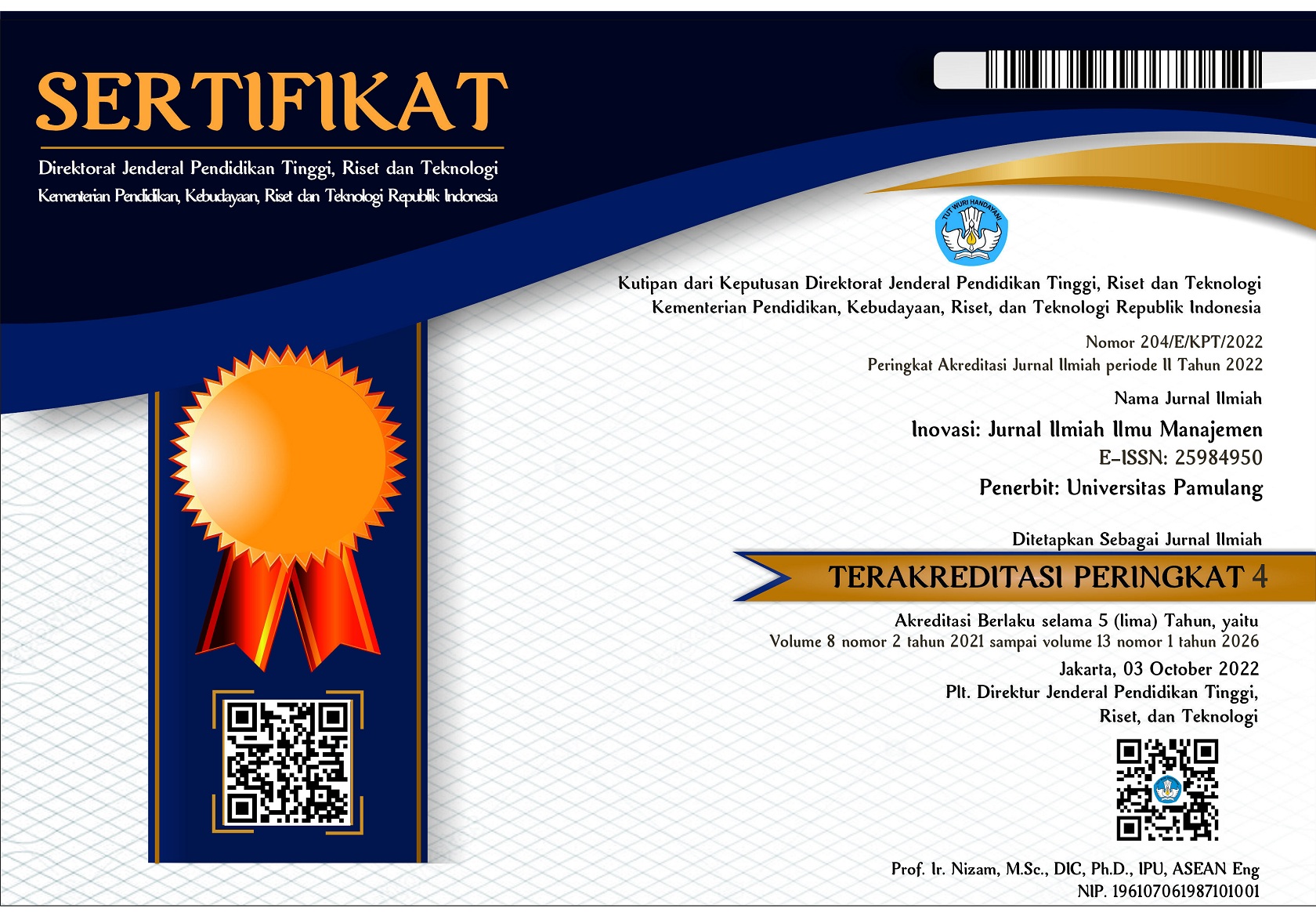ANALISIS PENGARUH KOMPENSASI, KEPUASAN KERJA, KOMITMEN ORGANISASIONAL TERHADAP TURNOVER INTENTION (STUDI PADA KONSULTAN DESIGN PT. GRAHACIPTA).
DOI:
https://doi.org/10.32493/Inovasi.v3i1.p%25p.289Abstract
ANALYSIS OF EFFECT OF COMPENSATION, JOB SATISFACTION, ORGANIZATIONAL COMMIT-MENT TO TURNOVER INTENTION (STUDY IN DESIGN CONSULTANTS PT. Grahacipta). A high turn-over rate would cause a negative impact for the Organization, it is like creating instability and uncertainty (uncertainty) against labor conditions and increase the cost of the human resources in the form of training costs which have already invested in employee recruitment and training costs to return. High Turnover also resulted in ineffective organizations because the company lost experienced employees and retraining new employees. The purpose of this research is to analyze the effect of variable compensation, job satisfaction, and organizational commitment of turnover intention and to analyze the variable that has the biggest influence of turnover intention. The sample is around 117 respondents. As for the methods used in sampling is by using census sampling method, and the analyze data use the multiple linear regression analyze, with the SPSS program assistance. The results of the testing of the hypothesis, indicating that : 1) the variable compensation have negative effect on turnover intention, 2) job satisfaction have negative effect on turnover intention, 3) organizational commitment have negative effect on turnover intention, 4) compensation, job satisfaction, organizational commitment have negative effect on turnover intention.
Keywords: Compensation, Job Satisfaction, Organizational Commitment, Turnover Intention
Downloads
Published
How to Cite
Issue
Section
License
Authors who publish with this journal agree to the following terms:
- Authors retain copyright and grant the journal right of first publication with the work simultaneously licensed under a Creative Commons Attribution License that allows others to share the work with an acknowledgement of the work's authorship and initial publication in this journal.
- Authors are able to enter into separate, additional contractual arrangements for the non-exclusive distribution of the journal's published version of the work (e.g., post it to an institutional repository or publish it in a book), with an acknowledgement of its initial publication in this journal.
- Authors are permitted and encouraged to post their work online (e.g., in institutional repositories or on their website) prior to and during the submission process, as it can lead to productive exchanges, as well as earlier and greater citation of published work (See The Effect of Open Access).
INOVASI: journal of managenet have CC-BY-SA or an equivalent license as the optimal license for the publication, distribution, use, and reuse of scholarly work.
In developing strategy and setting priorities, INOVASI: JOURNAL OF MANAGEMENT recognize that free access is better than priced access, libre access is better than free access, and libre under CC-BY-SA or the equivalent is better than libre under more restrictive open licenses. We should achieve what we can when we can. We should not delay achieving free in order to achieve libre, and we should not stop with free when we can achieve libre.









